Features
Multicultural Aged Care Landbank Policy: Victoria Labor Government Cheated Chinese Voters
Published
5 hours agoon
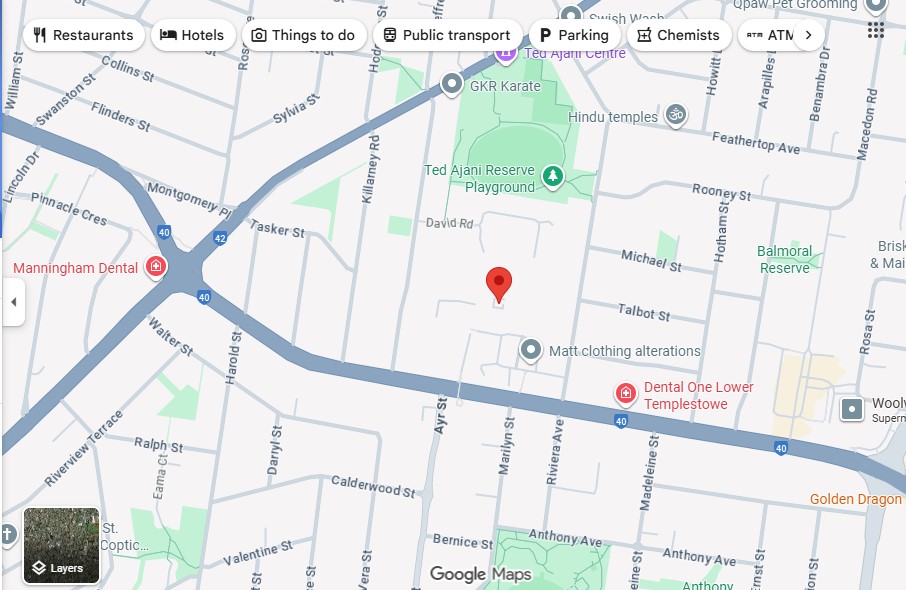
In Victoria, the proportion of overseas-born residents increased from 20.4% in 2006 to 29.9% in 2021, while the proportion of households speaking a language other than English rose from 20.4% to 27%. Consequently, since 2010, both major political parties have actively introduced immigrant-friendly policies to win support from migrant communities. In 2008, Ted Baillieu of the Liberal Party launched a Chinese-language opposition leader column in this publication, successfully gaining significant Chinese votes and becoming Premier in 2010. In 2014, Labor’s Daniel Andrews proposed buying land and leasing it to Chinese and Indian communities for aged care facilities, winning back votes in Victoria’s two largest multicultural communities from the Liberals. Labor has remained in power since then. In 2018, Andrews repeated the strategy, allocating AUD 7.25 million to purchase more land near Mount Dandenong and inviting Chinese community organizations to build additional aged care facilities. However, while the land was purchased, four parcels promised for minority-led aged care projects remain unused and have not been handed over to minority communities.
Since 2014, Labor has pledged to build hundreds of aged care facilities tailored to the language and culture of minority seniors. Yet, over the past 11 years, not a single additional bed has been provided for Victoria’s Chinese or South Asian elders. Meanwhile, the lands originally intended for these facilities have remained vacant, leaving hundreds of non-English-speaking seniors to spend their final years in environments where communication is limited and care is inadequate. The internal problems within the Labor government have gone largely ignored by mainstream media and society.
Multicultural Aged Care Landbank
In recent years, the Victorian government has introduced several policies addressing aged care for multicultural communities, including the “Multicultural Aged Care Landbank” program. On the surface, this policy aims to provide culturally and linguistically appropriate facilities, particularly for Chinese, Indian, and other migrant seniors. However, examining the policy’s development and implementation reveals significant challenges and inequities faced by the Chinese community. Greater vigilance is required in participation, oversight, and safeguarding community interests. This article aims to help Chinese seniors, families, and community organizations in Melbourne better understand the policy and prepare for future aged care needs.
Policy Origins: Promises, Pilots, and Initial Steps (2014–2015)
Ahead of the 2014 Victorian state election, Labor launched a platform including 100,000 new jobs and large-scale infrastructure projects. While education, health, and transport were mentioned, the Multicultural Aged Care Landbank policy did not appear in official campaign documents, suggesting it was a niche election promise rather than a key platform. This low-profile launch left room for future policy adjustments, as there was limited public oversight or a clear definition.
In July 2015, Labor announced an agreement with nonprofit Southern Cross Care to build a 90-bed aged care facility at North Williamstown. Officially part of the Landbank program, this project aimed to address rising inner-city land costs that made it difficult for nonprofit providers to acquire land near the city. Although labeled “multicultural,” it was primarily a general land reserve/support program for nonprofits, not specifically focused on multicultural seniors. This early inconsistency between promise and action foreshadowed the marginalization of the Chinese community.
Policy Evolution: From Landbank to Altered Conditions (2016–2024)
In October 2017, the Department of Health and Human Services (DHHS) issued a call for expressions of interest (EOI) for aged care facilities in Springvale South targeting the Chinese community. The EOI allowed existing or newly established nonprofit Chinese organizations to apply without being approved as aged care providers, focusing on cultural competence and fundraising capacity. The Chinese Community Council of Australia (Vic Chapter, CCCAV) was selected in October 2018 and paired with experienced provider Doutta Galla, intending to build in Springvale South. While initially seen as a win, CCCAV reportedly failed to raise funds and did not secure the land.
In the 2019–20 state budget, the government purchased a 10,000 m² site at 227 Manningham Road, Templestowe Lower, for over AUD 10 million. A second EOI in 2021 invited Chinese nonprofit organizations to lease the land. However, delays occurred. After CCCAV submitted a complete application in early 2022, Ernst & Young reviewed it, and no decision was made before the 2022 election. In July 2023, after multiple negotiations, the DHHS decided to restart the application process. Delays reportedly increased construction costs by more than AUD 600,000.
By November 2024, a new EOI for four parcels (two for Chinese, two for Indian communities) required applicants to be approved residential aged care providers, excluding many Chinese community organizations like CCCAV, which lacked such status. Currently, Victoria has only three Chinese-language aged care facilities. This shift effectively returned community-led opportunities to mainstream providers, and the EOI was not widely communicated to prior participants, giving them less than four weeks to apply—a clearly unfair process.
From Promise to Marginalization: Community-Led to Provider-Led
Initially, the policy allowed community organizations, particularly Chinese groups, to participate and potentially become aged care providers. By 2024, requiring approved provider status would exclude these organizations, undermining years of preparation. For the Chinese community, this meant that promised land and construction opportunities were reduced, and community-led participation was weakened.
Additionally, the “multicultural” label masked the reality that government resources and processes favored large mainstream providers. According to the Ethnic Communities’ Council of Victoria (ECCV) 2018 report, over 30% of seniors in Victoria aged 65+ come from non-English-speaking backgrounds, often facing disadvantages in care services.
Shifting from community-led to provider-led reduces culturally and linguistically appropriate care opportunities, forcing Chinese seniors to accept services with less cultural sensitivity. Procedural opacity and tight timelines disproportionately exclude resource-limited organizations, widening the trust gap between the community and government.
Chinese Communities Can No Longer Remain Bystanders
Over the years, the government has conveyed promises to immigrant communities through the Landbank program: appropriate facilities, cultural and language services, and community-led development. Yet, the experience of the Chinese community reveals the risk of “overpromising”: communities invited to participate were ultimately excluded by large providers, land commitments remained unfulfilled, and processes were opaque and frequently changed. As a result, policies that should have been implemented remain largely theoretical.
For Melbourne’s Chinese community, this is not just policy analysis but a practical issue affecting elder care and community welfare. Families and organizations must actively participate, plan, monitor processes, and advocate for culturally sensitive care to ensure seniors receive truly appropriate services.
A deeper issue is that Labor’s superficially sincere policy clearly misled minority communities and won their votes in the 2014, 2018, and 2022 elections. In the 2022 election, our publication asked Premier Andrews why he had broken trust with the Chinese community. He arrogantly responded, “The land was purchased; it’s your Chinese community that refused it, not the government’s failure.”
I replied, “The land in question, located in Springvale South and now a 10,000 m² site in Templestowe Lower, was allocated to the Chinese Community Council of Australia (Vic Chapter), founded by retired Labor MP Lin Meifeng in 2018. With AUD 7.25 million funding from the 2019 federal Liberal government, any Chinese community organization could have built on it.”
However, over the past three years, facing fiscal strain and huge debt, the Victorian Labor government has not prioritized assisting Chinese community organizations. The Victorian Liberals, weakened internally, are unable to supervise the government. With the rise of independent MPs at the federal level since 2022, the next state election may see independent minority candidates raise this agenda, forcing major parties to confront it.
It is now time for multicultural communities to speak up and compel the Victorian government to address its long-term neglect of minority elders.
You may like
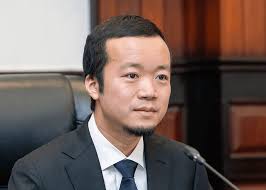
Introduction: The Collapse of a $14 Billion Empire and Global Silence
In October 2025, a U.S. arrest warrant sent shockwaves through Southeast Asia’s financial circles. The U.S. Department of Justice, in cooperation with UK law enforcement, issued a global arrest notice for Chen Zhi, founder of Cambodia’s Prince Holding Group. He is accused of orchestrating the world’s largest cryptocurrency money-laundering operation and running a scam network in Cambodia, involving as much as $14 billion. Once celebrated as the “2021 Entrepreneur of the Year” and a “2024 Global Economic Leader,” Chen is now labeled an international crime lord.
On the surface, Prince Holding Group is a real estate developer, financial services provider, and customer support operator. In reality, it runs multiple forced-labor scam “parks” in Sihanoukville, Phnom Penh, and elsewhere. Victims are lured through fake job advertisements; upon arrival, passports are confiscated, and they are subjected to electric shocks, starvation, sexual assault, and forced daily “pig-butchering” scams—gaining trust via dating apps before persuading victims to invest in virtual currency platforms, ultimately draining their savings. The funds are laundered through offshore companies, crypto wallets, and financial hubs in Singapore and Dubai, then funneled back into Cambodian real estate, blending illicit capital with legitimate business.
The U.S. has frozen Chen’s assets and issued a red notice, but he remains at large. More strikingly, despite Chen holding two publicly listed companies in Hong Kong and serving as chairman, the Hong Kong government has taken no action, neither suspending stock trading, freezing assets, issuing warrants, nor investigating his companies. Chinese state media have remained silent. This is not just a corporate collapse, but a national-level laundering saga implicating tacit approval from Chinese political leaders, Cambodian political-business collusion, and global regulatory gaps.
The Infamous Rise: From Fuzhou Internet Café to Cambodia’s “Scam Tsar”
Born in 1987 in Fujian, China, Chen started from a small internet café in Fuzhou. In 2015, he moved to Cambodia under an investment immigration scheme and founded Prince Holding Group. Within ten years, he built a sprawling empire across real estate, finance, and gambling, earning awards and forging deep ties with Cambodia’s elite.
By 2020–2022, Thai and Cambodian authorities had already flagged his employees for illegal online gambling and money laundering. A 2025 joint investigation by U.S., Thai, and Cambodian authorities revealed the full scope: Cambodian “scam parks” exploited Chinese, Vietnamese, and Indian laborers, deceived by fake job ads into modern slavery. The scams were meticulous: victims were “fattened” via dating apps, then enticed to invest in virtual currencies. Money flowed through offshore companies, cryptocurrency wallets, and financial centers in Singapore and Dubai, and then back to Cambodian real estate. This combination of crime and business is the core of Chen’s empire—appearing as developers while operating the world’s largest laundering machine, distorting Cambodia’s economy, inflating housing prices, fueling corruption, and exporting financial risk globally.
Qian Zhimin vs. Chen Zhi: Pure Commercial Fraud vs. State-Level Crime Network
Another crypto scam giant, Qian Zhimin (“Bitcoin Queen”), provides a sharp contrast. She founded Blue Sky Germanium Electronic Tech in 2014, promoting high-yield investment schemes and fictitious Bitcoin mining operations, often posing as a philanthropist or person with disabilities. She pleaded guilty in the UK in September 2025; investigations found her holding over £5 billion in Bitcoin. Unlike Chen, Qian’s schemes were purely commercial fraud, relying on psychological manipulation and Ponzi structures. Chen’s operations, in contrast, involve international relations, Chinese influence in Cambodia, political protection, and border laxity—far beyond individual capacity.
The Chinese Factor: Hong Kong Silence = State Approval?
Despite being a top U.S. fugitive, Hong Kong police have not acted. Prince Holding maintains multiple shell companies in Hong Kong for fund transfers. Chen publicly praised the Belt and Road Initiative, with his Cambodian projects receiving low-interest loans from Chinese banks, and the Chinese embassy in Cambodia repeatedly endorsed him as a “model of China-Cambodia friendship.” Chen’s core influence is in Cambodia, but his protection stems from China. Hong Kong’s inaction is effectively a national-level cover, allowing him to operate under international pursuit.
Palau Gambit: Hotel Investment as United Front Strategy
Since 2023, Prince Holding has expanded into Palau, pledging $120 million for a five-star resort and casino, promising 800 jobs and infrastructure upgrades. While appearing as typical Belt and Road development aid, the project carries geopolitical motives. Palau, one of only 12 nations with formal diplomatic ties to Taiwan, has resisted Beijing’s “checkbook diplomacy.” Chen’s resort is located on the main island near the presidential palace and parliament, including a “China-only conference center” and direct flights to Phnom Penh. Local opposition claims the project aims to soften Palau’s stance toward Taiwan, creating pro-China factions via economic incentives.
Evidence suggests Chen may act as a Chinese United Front agent:
- His Palau project received low-interest loans from China’s Exim Bank, 40% below market rate.
- In 2024, Palau’s President publicly criticized the project as a “threat to sovereignty,” met only with a “regretful” response from China’s foreign ministry.
- Shell companies registered in Palau trace back to Hong Kong directors with Chinese capital.
Under united front logic, Chen is not a mere “scammer” but a “usable pawn.” His Cambodian pig-butchering and laundering activities are deemed an acceptable cost for expanding Beijing’s influence in the Pacific. This explains China’s silence or tacit support for his evasion.
The Global Media Vacuum: Silence as Position
Chinese media have completely blocked coverage, hiding political links; Cambodian local reporting is muted, praising Chen to avoid political retaliation; Thai reports are sparse, fearing impacts on tourism and Chinese investment; UK and U.S. media pursue high-profile prosecutions with jurisdiction over victims. Media silence across nations aligns with state interests and diplomatic pressures, reflecting not incapacity but deliberate positioning.
Australia’s Structural Blind Spot: Systemic Ignorance of Asian Corruption
Mainstream Australian media (ABC, The Australian, SBS, 9News) have barely reported on Chen, mostly through second-hand sources. This is a systemic issue:
- Geographic and psychological distance make Southeast Asia seem remote; editors prioritize domestic politics, climate, and sand ports.
- Professional capacity is limited: crypto laundering, offshore companies, and human rights investigations require cross-disciplinary expertise, scarce in Australian media.
- Cultural bias: Australia’s public sees developed nations as “normal” and Asian corruption as “typical for developing countries,” ignoring global ripple effects. Chen’s network has reached Australia: dozens of citizens became pig-butchering victims; Prince Holding has shell companies in Sydney and Melbourne; Australian superannuation may indirectly invest in his real estate.
- Commercial and political sensitivities exacerbate silence: reporting risks offending Chinese firms or being labeled “anti-China.”
Media silence reflects structural ignorance of Asian political-business corruption and creates national security risks. Without media warnings, investors, policymakers, and law enforcement operate in an information vacuum.
The Mirage of Prosperity and Moral Decay: Wealth as Power
Chen’s case exemplifies China’s “wealth as power” strategy. Prince Holding builds schools and hospitals to secure development rights and political favors. Beneath philanthropy lies a grey capital cycle: fraud → laundering → real estate → political donations → protection.
With expanded U.S. and UK sanctions, Cambodia’s “investment paradise” image collapses, and regional countries quietly distance themselves. Crypto anonymity, cross-border payments, weak Southeast Asian regulation, and lax Chinese capital outflow controls create technical loopholes. Psychological and cultural vulnerabilities—greed, blind trust in authority, collectivist pressures—aid scammers.
Scammers sell not just wealth but social recognition: luxury cars, trophies, media exposure, celebrity photos, creating a “prosperity illusion” that lures victims. Lack of reporting results in personal financial losses, trauma, loss of trust in media and regulation, limited regulatory reform, hindered intelligence sharing, criminal expansion, asset bubbles, and threats to global financial stability. Australia’s continued silence risks becoming the next laundering hub.
Solutions: Media, Policy, and Public Action
Australia should:
- Establish a “Cross-Border Scam Investigation Fund” and collaborate with Southeast Asian independent media.
- Launch “Red Flag Alerts” for high-risk investments.
- Require Chinese-funded projects to disclose sources, strengthen AFCA handling of crypto scams, and share intelligence with the FBI.
- The public should learn to spot investment red flags (high returns, guaranteed principal, urgency), use ASIC tools, and report suspicious groups.
Whistleblower protection and transnational investigations are crucial—only with intelligence circulation can criminal networks be exposed.
Chen Zhi is not the endpoint but a warning. When criminal capital masquerades as legitimate investment, state power becomes a scam backstop, and the media collectively remain silent, the global financial system’s defenses collapse. Australia can no longer console itself with “this is an Asian issue.” The next Chen may already be registering a company in a Sydney office.
“Money Makes the Devil Grind” is no metaphor; it is Southeast Asia’s harshest business reality. Only through responsible media, restrictive policy, and public vigilance can this national-level money-laundering drama end.
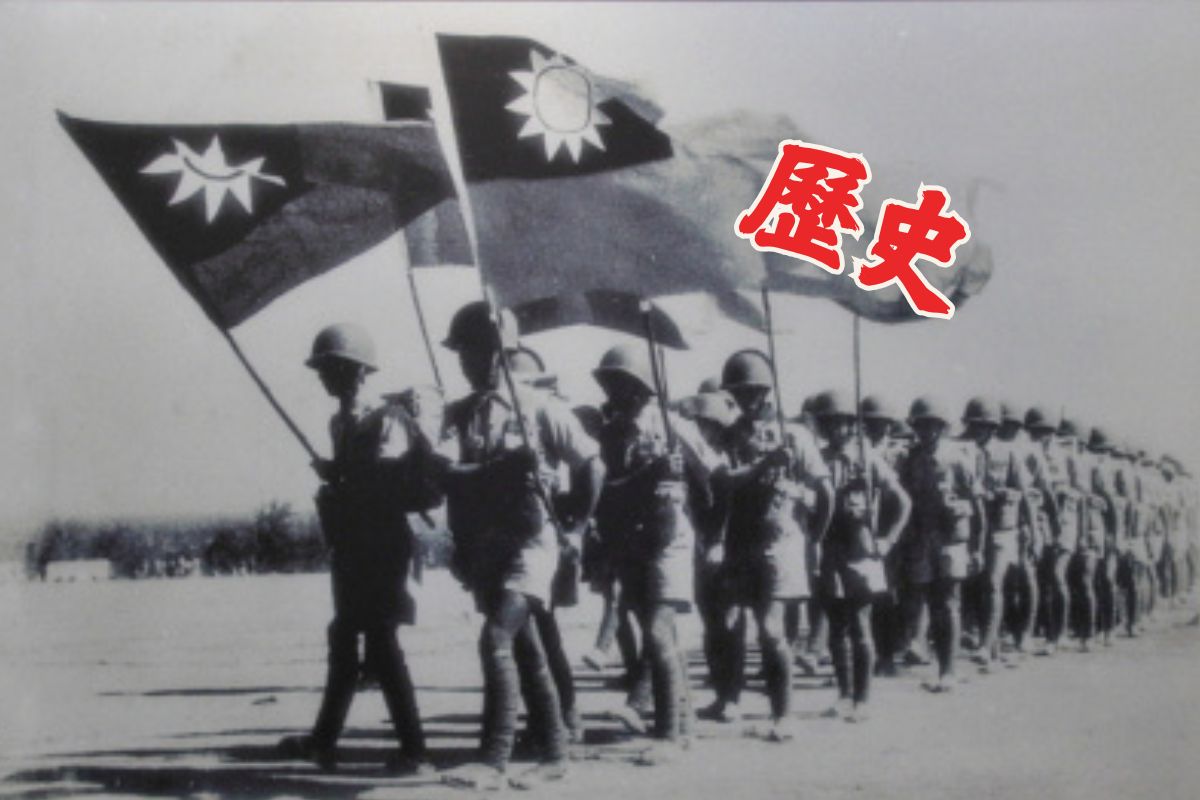
Over the past few weeks, I have participated in several events commemorating the 80th anniversary of the War of Resistance Against Japan. These events made me reflect: Is it really true that history will be ultimately judged by the public?
Earlier this year, Mr. Bill Lau of the Chinese Youth Society of Melbourne (CYSM), a well-known leader in the overseas Chinese community, discussed with me how to organize activities for the 80th anniversary. At the time, I pointed out that the current global situation—amid the Russia-Ukraine and Israel-Hamas wars—bears some resemblance to the early political landscape of the Second Sino-Japanese War. In commemorating the 80th anniversary, we should draw hope and direction from history for the present world, rather than falling into the old argument over whether the Kuomintang (KMT) or the Chinese Communist Party (CCP) led the resistance against Japan.
During a cultural performance in early October, over a hundred members of the CYSM staged an all-inclusive performance that began with the late Qing Dynasty’s humiliation by foreign powers and led into Sun Yat-sen’s founding of the Republic of China, emphasizing the ideal of saving the Chinese nation by overthrowing the Manchu government. The Japanese invasion was portrayed as a wound inflicted upon a still-unstable, newly established China. At the same venue, a bilingual (Chinese-English) historical photo exhibition and special publication introduced today’s younger generation to the Chinese people’s unwavering resistance. These also highlighted how Chiang Kai-shek’s government, during the 8-year war of resistance, tied down Japanese forces and hindered their participation in the European war front.
Although the People’s Republic of China today also commemorates the 80th anniversary of the victory over Japan, the historical reality is that the Communist forces only began to gain a dominant position in China after World War II. Overemphasizing the CCP’s leadership role in the war does not align with historical facts. Eighty years after the war ended, we now see regimes rewriting this chapter of history. Moreover, portraying Japan—which now has no military power—as a continuing threat under militarism is inconsistent with the current reality.
In ongoing conflicts like the Russia-Ukraine war or the temporarily paused Israel-Hamas war, news reports show us that different countries interpret events in vastly different ways. This reminds us that today’s media must uphold professionalism, fairness, and courage in reporting the truth, so that future generations can accurately understand the reality of these wars.
Since ancient times, China has relied on official records to document major events. After a dynasty falls, historians of the next regime compile the previous dynasty’s history. The accuracy of such records depends on whether there were historians like those praised in Wen Tianxiang’s “Song of Righteousness,” who insisted on truth in the face of power—like the scribes of Qi and the historian Dong Hu of Jin. Clearly, under the autocratic rule of Qin Shi Huang, few such historians remained. Throughout Chinese history, official historians have always remembered the tragic consequences of “literary inquisitions” — countless lives lost and voices silenced. Therefore, while China has official histories, these records do not necessarily reflect historical truth.
As we commemorate the 80th anniversary of the War of Resistance today, we are still able to hear anti-Japanese stories passed down from our parents’ generation or infer the atmosphere of the time from films, novels, and written accounts. However, as time goes on, uncovering the truth of history becomes more difficult. As a media professional, I especially treasure the opportunity we have today to report and comment on current affairs with objectivity.
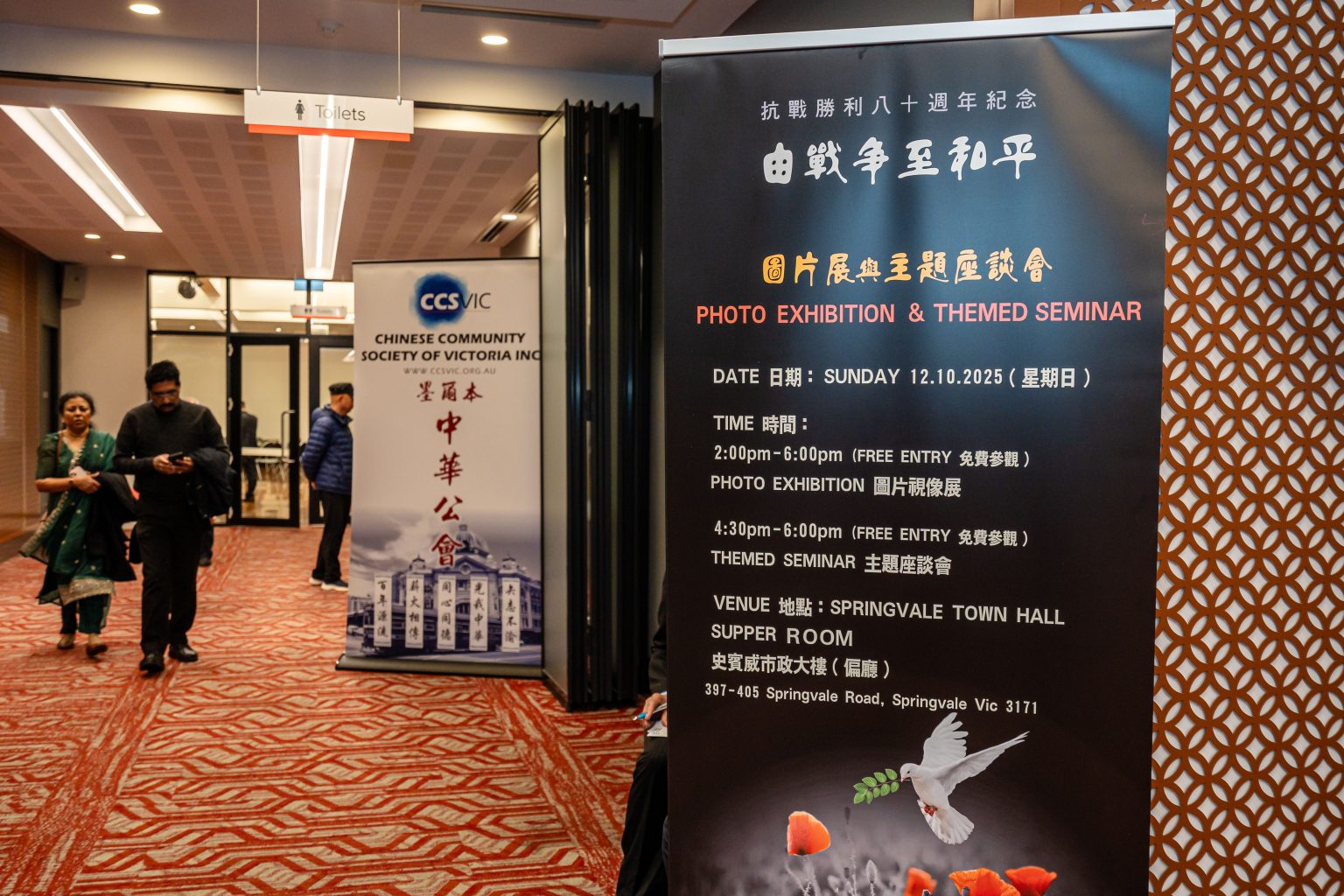
In each issue of Sameway Magazine in June, I usually write reflections on the June Fourth Massacre. The incidents that unfolded in China on that day in 1989 altered the life paths of my generation and myself. Additionally, every October, I reflect on China’s experiences over the past century. In 2011, encouraged by Taiwanese historian Dr. Gary Lin Song-huan, Sameway published a special commemorative edition every two months leading up to the centenary features publication of Republic of China. That October, we released the Centennial Special Edition exploring a century of modern Chinese history. This year marks the 80th anniversary of the victory over Japanese invasion of China. Not only did China hold a military parade on September 3rd, but Melbourne’s overseas Chinese community also seized this opportunity to organize various commemorative events.
While China’s victory in the War against Japan invasion is undoubtedly a cause for celebration among global Chinese communities, earlier this year, Mr. Bill Lau of the Chinese Youth Society of Melbourne CYSM discussed with me: What connection can today’s generation, raised in Melbourne, possibly have with the War? What should this generation commemorate? How could the Nanking Massacre, the Siege of Shanghai, and the major battles be connected to their generation? At the time, I suggested that the Sino-Japanese War could be traced from the September 18 Incident of 1931, through the Xi’an Incident of 1936 and the Marco Polo Bridge Incident of 1937 that ignited full-scale war, ending in 1945. Doesn’t this resemble Russia’s invasion of Crimea in 2013, and the ongoing Russia-Ukraine conflict that has now stretched beyond the past three years?
Though Japan’s invasion of China unfolded on Chinese soil while the European war had yet to begin, it was entangled in the complex web of alliances and rivalries among nations worldwide. The European war erupted two years later, while the Pacific War saw U.S. entry after the 1941 Pearl Harbor attack. This demonstrates how the Sino-Japanese War continuously constrained the progress of the German-Japanese alliance. Reflecting on this historical period, I believe it offers profound insights into the unfolding global landscape today.
In China, everything operates under state control. The national history taught to students is entirely written by the Communist Party, and the resistance against Japan has historically received scant mention. Yet in recent years, China has vigorously promoted the narrative that the Communist Party led the anti-Japanese struggle. By stoking anti-Japanese sentiment, it has ignited Chinese nationalism, turning condemnation of Japanese militarism into official policy. On the 70th and 80th anniversaries of the War of Resistance, China held grand military parades to showcase its growing national strength. Consequently, the facts surrounding the War have garnered attention within Chinese communities worldwide.
The question of who led the resistance against Japan is actually quite straightforward to discern. When Japan began its aggression against China, the Chinese Communist Party had only recently been established and had not yet assumed governance over China. Its military strength was nowhere near what it is today. To describe the Communist Party as the main force in the resistance at that time, or as leading China’s fight against Japan, defies basic common sense. It is evident that over the past two decades, the renewed emphasis on the hatred of Japan’s invasion of China and its current threats to China is nothing more than political propaganda, not worthy of serious debate. Yet, under prolonged political indoctrination, it is indeed concerning to consider how well the younger generation of Chinese, raised in today’s China, truly grasp the facts of the Sino Japannese War.
In the commemorative events organized by various Melbourne groups this year, Mr. Bill Lau particularly emphasized that the cultural variety show should center on presenting history, allowing performers and audiences alike to revisit authentic historical events. Additionally, community education was conducted through bilingual historical photo exhibitions and the publication of a special publication. I believe this is a very sound approach. However, at one symposium I attended, certain community leaders focused solely on condemning the Communist Party for seizing mainland power through the war effort. They clearly exploited the commemoration as a platform for political posturing, which was deeply disappointing.
Undoubtedly, the eight-year War of Resistance exhausted the Nationalist forces while the Communists conducted propaganda and education campaigns, winning popular support. Furthermore, the Nationalist government’s corrupt and incompetent rule led to a deteriorating post-war economy, ultimately resulting in the transfer of rule in China and shaping today’s political landscape. It can be said that Japan’s invasion profoundly influenced contemporary Chinese politics. However, portraying this war solely as a calamity brought about by the Communist Party does not tell the whole story.
For those of us who grew up and were educated in Hong Kong or overseas Chinese communities with open access to information, commemorating the resistance against Japan should deepen our understanding of today’s global landscape. As for the next generation or younger cohorts, I firmly believe we bear the responsibility to preserve contemporary historical events through media. We must enable them, through education, to develop critical thinking skills and uncover the truth of history.
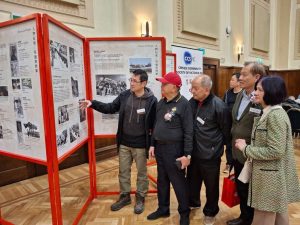
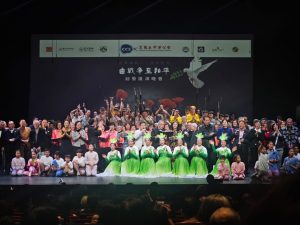

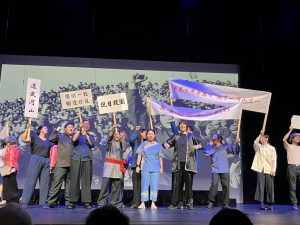
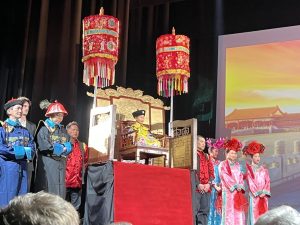
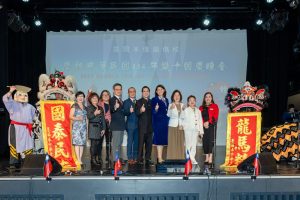
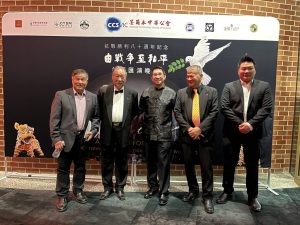
Mr. Raymond Chow
Published in Sameway Magazine on 24 October 2025
Listen Now


Multicultural Aged Care Landbank Policy: Victoria Labor Government Cheated Chinese Voters

Silence is Complicity; Vigilance is the Weapon

Can history be truly judged by the public?
Melbourne Woman Unable to Call 000 Highlights Telecom System Gaps
UK Military Equipment Suspected to Have Reached Accused Militia

Fraudulent ivermectin studies open up new battleground

Cantonese Mango Sago

FILIPINO: Kung nakakaranas ka ng mga sumusunod na sintomas, mangyaring subukan.

如果您出現以下症狀,請接受檢測。

保护您自己和家人 – 咳嗽和打喷嚏时请捂住

Multicultural Aged Care Landbank Policy: Victoria Labor Government Cheated Chinese Voters

Silence is Complicity; Vigilance is the Weapon

Can history be truly judged by the public?

U.S. Investment Report Criticizes National Security Law, Hong Kong Government Responds Strongly

China Becomes Top Destination for Australian Tourists, But Chinese Visitor Return Slows
Trending
-

 COVID-19 Around the World4 years ago
COVID-19 Around the World4 years agoFraudulent ivermectin studies open up new battleground
-

 Cuisine Explorer5 years ago
Cuisine Explorer5 years agoCantonese Mango Sago
-

 Tagalog5 years ago
Tagalog5 years agoFILIPINO: Kung nakakaranas ka ng mga sumusunod na sintomas, mangyaring subukan.
-

 Uncategorized5 years ago
Uncategorized5 years ago如果您出現以下症狀,請接受檢測。
-

 Cantonese - Traditional Chinese5 years ago
Cantonese - Traditional Chinese5 years ago保护您自己和家人 – 咳嗽和打喷嚏时请捂住
-

 Uncategorized5 years ago
Uncategorized5 years agoCOVID-19 檢驗快速 安全又簡單
-
Uncategorized5 years ago
在最近的 COVID-19 應對行動中, 維多利亞州並非孤單
-
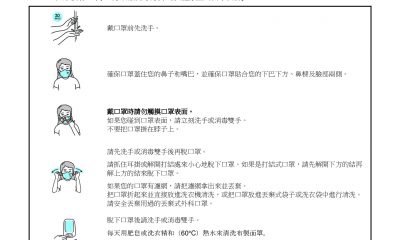
 Uncategorized5 years ago
Uncategorized5 years agoHow to wear a face mask 怎麼戴口罩


